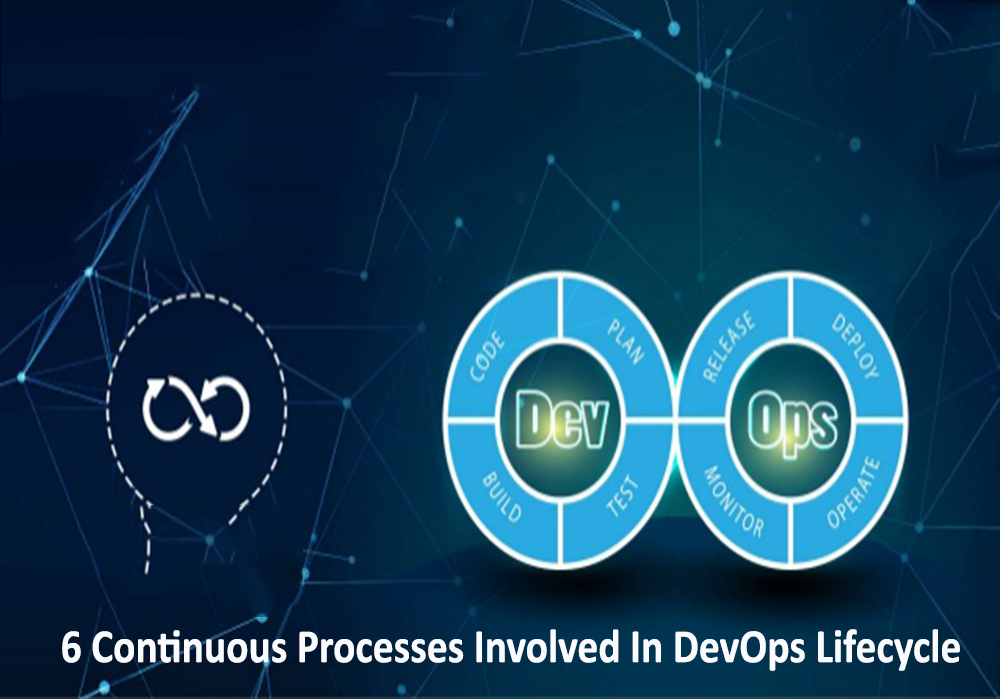Last Updated on by
6 Continuous Processes Involved In DevOps Lifecycle

With the advent of DevOps the production & deployment lifecycles across IT & corporate organizations has taken a new shape. DevOps is more like a culture shift which not just empowers the enterprise workflow but will also be paving way for several other benefits. Every tech enthusiast must be quite aware of the fact that agile & lean approach are among the core principles of DevOps.
In this blog post, let’s have a look at different continuous process involved in the DevOps lifecycle
- Continuous Business Planning
Continuous Business Planning the very first step involved in the DevOps lifecycle. The prime objective behind Continuous Business Planning revolves around finding potential avenues that could contribute to business growth, pinpointing the skills required, fixing outcomes of decisions and resources required.
- Collaborative Development
Collaborative Development relates to designing a sketch plan and programming for development to start with. It can be interpreted as of process for integrating, collaborating, system communication within IT functions. These functions are responsible for operations, application development, quality assurance and infrastructure development.
- Continuous Integration
CI is a development practice where all the code modifications done by software developers are merged into a central repository, after which automated builds and tests are run.
- Continuous Testing
This the crucial stage in the DevOps lifecycle. It involves continuous testing of the code right from the start to the end of the applications development lifecycles. Continuous testing will empower the efficiency of the organisation by continuously performing unit and integration testing.
- Continuous Monitoring
Monitoring the performance of every system in the application production & development line is a must to avoid any form of errors. This stage includes monitoring changes and any errors or mistakes whenever it happens.
- Continuous Release and Deployment
This stage involves continuous monitoring release process and deployment procedures. All the changes are closely reviewed
- Collaborative Customer Feedback & Optimization
The foremost important aspect in any process is the customer feedback. Customer feedback helps in determining whether your DevOps services are up to mark or not. It also allows you to optimize entire process as well.
Get to know more about the DevOps lifecycle by being a part of the Kelly Technologies industry relevant learning program of DevOps Training In Hyderabad.

